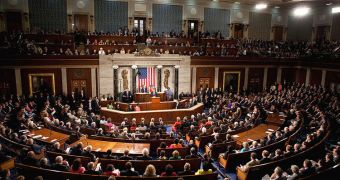As we also told you last week, bioengineers managed to create the first synthetic life form recently. They combined an artificially-produced genome with a host cell, and watched as the new organism grows. The achievement elicited a huge wave of discussions and debates in the international scientific community, especially between bioengineers and ethicists. The latter argue that it's immoral for scientists to play god, while the former emphasize the practical benefits of developing this technology. Now, even the Congress and President Barack Obama have taken a stand on this issue, Wired reports.
The discussions took place yesterday, May 27, during a hearing held by the House Energy and Commerce Committee. The meeting was convened in a haste, as the massive breakthrough raises a considerable number of implications. This captured the attention of officials of the highest rank, who decided to discuss issues related to synthetic biology for the first time ever. The synthetic life form was developed in a lab at the J. Craig Venter Institute, and came with a price tag of $40 million. Following the announcement, Obama instituted a panel of esteemed scientists, which is to conduct a six-month-long review of the challenges and promises associate with this field of research.
“Synthetic biology also has the potential to reduce our dependence on oil and to address climate change. Research is underway to develop microbes that would produce oil, giving us a renewable fuel that could be used interchangeably with gasoline without creating more global warming pollution. Research could also lead to oil-eating microbes, an application that, as the Gulf spill unfortunately demonstrates, would be extremely useful,” said the chair of the committee, Rep. Henry Waxman (Democrat, California). He and his colleagues appeared to be especially interested in the possible applications that the new technology may have in creating microbes that can produce hydrocarbons.
On the other side of the table were Venter, Dr Jay Keasling, a professor of chemical engineering and bioengineering at the University of California in Berkeley (UCB), expert Drew Endy from the Stanfrod University, and Anthony Fauci, who is the director of the National Institute of Allergy and Infectious Diseases (NIAID), which is a component of the US National Institutes of Health (NIH). The discussions were generally calm, without the common harsh exchange of lines and pokes that usually characterize meetings of this nature.

 14 DAY TRIAL //
14 DAY TRIAL //